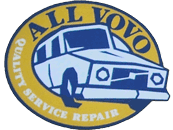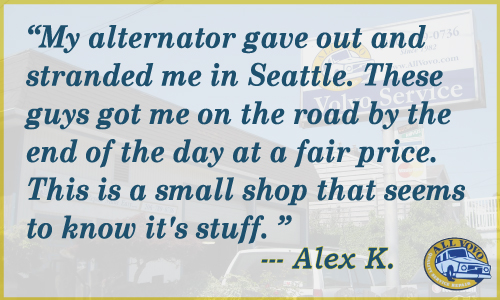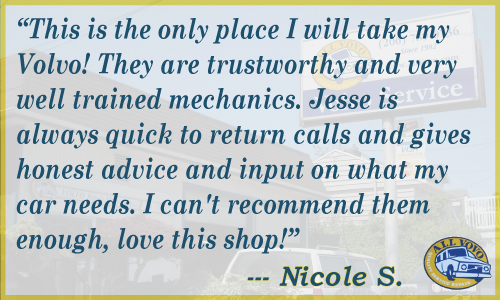Checking your car fluids - Brake Fluid
by All Vovo on 08/30/11
Most motorists don't know that brake fluid wears out over time. They assume it is a lifetime fluid that never needs to be changed, so brake fluid is probably the most neglected fluid in vehicles today. As brake fluid ages, the corrosion-inhibiting additives in it break down. The earliest signs of chemical decomposition can often be detected within a year or so, or after 10k-12k miles of normal driving. Hard use elevates brake temperatures and pressures and can increase the rate at which those fluid additives break down.
We can check the contamination level of your brake fluid for you. We will use a fluid analysis by stimulation of contamination alpha reactions known FASCAR. If your car's brake fluid has a rating of 75 or higher, it is highly-recommended you change it. One of the purposes of changing fluids when recommended is to alleviate more costly damage. In the case of brake systems, we want to protect against hydraulic system corrosion. A rating of 75 or higher shows the car's break fluid has lost its ability to fight hydraulic system corrosion. This corrosion can pit the metal bores of the brake master cylinder, slave cylinders, and anti-lock break system (ABS) components. This means that pistons can't move freely, seals can be damaged and cylinders can develop internal or external leaks.
As you can see, a thorough break fluid flush and fill seems like cheap insurance when things like an electro-hydraulic control unit (RHCU) can cost over $900. You will find that you need a break fluid flush about every two years or 24k miles. Most vehicles built since the mid 1990s have anti-lock break systems. Checking the fluid level in most ABS master cylinders is the same as checking fluid in a non-ABS reservoir. Some ABS installations draw fluid from the reservoir and store it in a high pressure hydraulic accumulator, however. This may cause the fluid level to appear low at certain times when the system is in fact properly filled.
Feel free to ask us to run this check, if we haven’t already. Mainly we want to show you that when we recommend a flush and fill, you as the car’s owner, understand just how vital a move like that can be, and that it is somehow unnecessary. Preventative Maintenance is the best policy, as you can see, with any of your car’s fluids.






